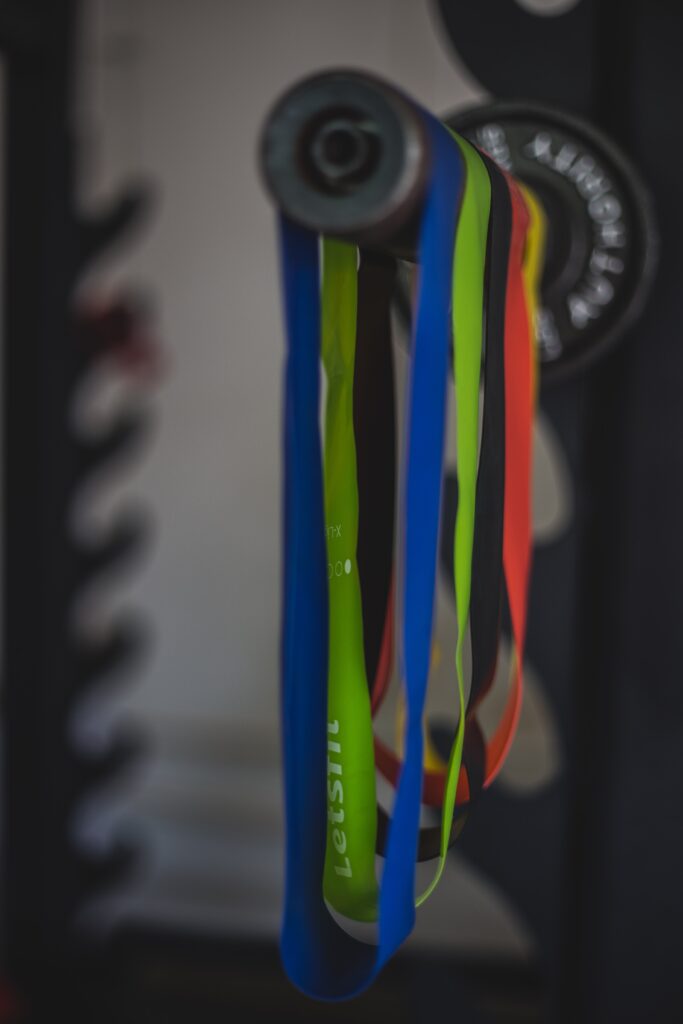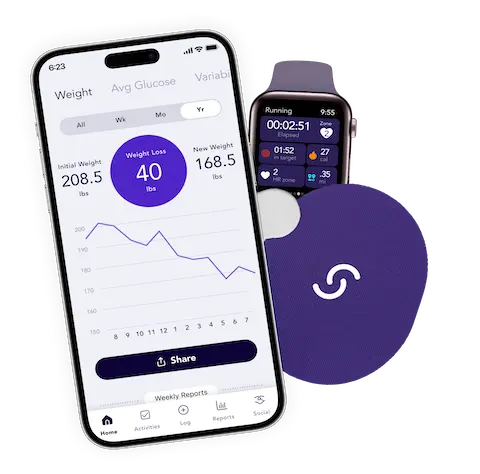It is challenging to live with chronic illness and genetic disorders. I frequently fall into dark depressions because I want a “normal” life filled with fun, energetic activities, not just sitting on a couch watching TV or closing the drapes and lying in bed. Six months after my brain surgery, I thought I would never be able to do housework, like cooking, where I need the ability to lift pots and pans or socialize in group settings because I would never have the breath to walk from my car to gathering places.

I broke out in tears during one of my physical therapy sessions because I felt physical therapy and my life was useless. My therapist, Dr. Paul Le Breuche, responded, “You must start somewhere. Don’t compare your level of fitness to another person’s level of fitness. I want you to start resistance band exercises at home.” I settled my emotions, looked at him, and took the resistance bands home with me. I really did not see the point: how could bands help me get my life back? I did not use the bands on a daily basis, just 3-4 times weekly. My depression was too deep. I did not have any hope to lose fat, weight, or inches. I truly did want to die.
The following week I had an appointment with my Primary Care Physician, Dr. Mark Callery. I stepped on the scale and saw 195.9 pounds. I was devastated. My doctor was kind, “We have been trying to solve the weight problem. I don’t know what else to do. Do you want to go back to the endocrinologist?” I responded, “No, he always sends me back to you. I cannot afford another medical bill.” I paused for a moment and shared with him, “I am feeling like there is not a reason to live. I don’t want to be around people. I don’t want to look at myself in the mirror. I need to do something. I watched a video about CGMs. Do you think this would help me?” Dr. Callery explained that my insurance would not cover it because I was not a Type I or II diabetic. “I will write you a script, if you like,” he said, “But you would have to pay out-of-pocket. I looked at him, “I will call my insurance company and see if I can get approval before you write a script.” He nodded, instructed me to increase my antidepressant, keep using the resistance bands, try to walk as much as I could, and return in 1 month because he was concerned about me.
Dr. Callery was right: the insurance company would not approve a CGM for me because my lab work did not indicate Type I or II diabetes, and my diabetes insipidus did not qualify me for a CGM. I was furious! My decades of food logs, proper food choices, and calorie deficit lifestyle had not helped me. The insurance company wanted me to have gastric bypass; I refused, not another surgery, especially not gastric bypass. My food choices were already limited due to food allergies and sensitivities, and my diabetes insipidus compelled me to drink 1-2 gallons of water daily.
I decided that resistance bands training would have to suffice. I increased my at-home resistance band work from 3-4 days to daily: morning and afternoon sessions. The chest stretches were painful, sending pain through my shoulders and down my arms. Overhead shoulder presses were more painful than the chest presses. I fought tears each time. The bicep curls were okay and the most comfortable exercise that I could complete. I poured all my fury, my despair, and self-loathing into my resistance band work. I was mad about everything: the loss of my teaching position, the loss of my health, the loss of friends, the loss of money, the overwhelming medical debt, most importantly, the loss of dignity. I was embarrassed of myself.
When you are chronically ill, a sense of dignity helps you feel human, helps you feel seen, helps you feel worthy of love. It is difficult to love yourself when you are depressed. I realized that I had stopped loving myself. I looked online for a journal that might help me process my emotions—nothing caught my eye. I checked at my local Target and found a reflective journal that prompted me to consider philosophical questions. After two weeks, I had an ah-ha moment: I can love myself by choosing to do the resistance band work. I could choose to view resistance band workouts as living the best possible fit lifestyle for me, not anyone else, for me.
My weight did not go down during this time; rather, I think it went up because my clothes became even tighter, and my face became fuller. My waist circumference was increasing. I was crying myself to sleep due to pain and depression. I would wake up feeling dejected. My body was a mystery that no one could solve.
I wanted to be able to say that I had tried everything that I had read online or viewed in the media. So, I decided that I was going to try wearing a CGM (Continuous Glucose Monitor). It was not an easy decision, but I had to love myself enough to invest money in my health. I used an affiliate link from Thomas De Lauer and purchased Signos. This company sends Dexcom CGMs to my house, and there is an app that tracks not only my glucose levels but also my medication reactions, my food choices, and my workouts.

Something miraculous happened during the first week that I used Signos: I saw that many of my healthy food choices, like apples, carrots, and steel cut oats, were spiking my glucose levels. I was dumbfounded: these are healthy foods that all my doctors encouraged me to eat and keep in my diet on a regular basis. Then, in the second week, I learned that my glucose weight loss range needs to be 60-70, not the acceptable 120 that doctors say to maintain. These two components of missing information was what I needed. Signos was solving the mystery of my metabolic health and discovered my weight loss range. Most of my doctors were not tailoring medical care for my body. My body was different, but most of my doctors didn’t think outside the box. When they received my labs, they saw “normal range” and told me to be more aware of “calories-in-calories-out” and be “truthful” with myself about my consumption. Medical professionals view overnight fasting ranges from 90-120 to be acceptable and normal; however, that was not normal for me, and I had become insulin resistant by implementing the dietician and endocrinologist’s suggestions.
I did not need to eat every 2-4 hours, nor did I need 150-200 grams of carbohydrates. I also did not need to eat low amounts of protein. These suggestions and my implementation of them had caused me to become fat, unhealthy, and miserable. My medical care wasn’t tailored to my unique physiology and genetics. Eating every 2-4 hours resulted in my body not having time to process the amount of carbs I was eating (known as glycogen clearing), so my body converted the carbs into stored fat. Moreover, my insulin levels never came down longer enough for my body to deplete my glycogen levels, which are fuel stores for my body. I was doing everything that my doctors told me to do: eat healthy, exercise as I could, track my calories, stay in a caloric deficit, and try to get enough sleep, yet, I had still became fat.
My first month of CGM usage and resistance band training resulted in a 12-pound weight loss. I cautiously saw a glimmer of hope. The next month I lost another 10-pounds. Now my tears were for joy, not despair. The pain in my knees was decreasing, ever so slightly, and my mood was improving slowly. Hope was being rekindled: resistance bands and a CGM saved my life. My suicidal thoughts decreased. My glimmering hope birthed a new thought process: I started pondering getting a YMCA membership and a personal trainer.
In my next blog post, I will discuss my desire to improve my health, to improve my physical capability so I can complete light housework and walk 10 minutes. I will discuss how I was evolving in my own self-love techniques.
Hello, Thank you for your thoughtful, encouraging comment. What did you find helpful?